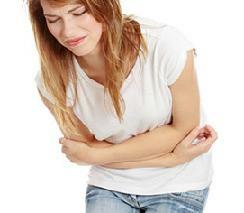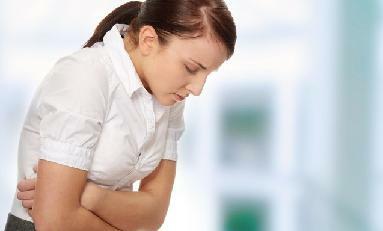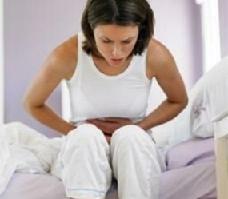 Pain in the stomach is a fairly frequent symptom, indicating the presence of a pathological process in the stomach, as well as adjacent organs (esophagus, pancreas, liver and gallstones bubble).
Pain in the stomach is a fairly frequent symptom, indicating the presence of a pathological process in the stomach, as well as adjacent organs (esophagus, pancreas, liver and gallstones bubble).
They can be acute and chronic, have varying intensity, duration and character. Localization in the epigastric region is often associated with food intake, as well as its nature (acute, sweet, etc.).
If you want to know why the stomach hurts, first of all it is necessary to characterize the pain: to describe its intensity, nature and localization. This will help to identify more accurate causes of stomach pain, and also to prescribe adequate treatment.
Causes of pain in the stomach
Pain in the stomach can cause diseases directly to the stomach, as well as the pathology of other organs and systems of the human body. The main issue in this case - the violation of which body caused pain in the epigastric region.
Causes of pain in the stomach,caused directly by his pathology:
- gastritis;
- stomach ulcer;
- viral and bacterial infections;
- functional disorders of the stomach;
- damage to the gastric mucosa;
- individual intolerance to certain foods and allergies;
- food poisoning;
- emotional and physical stress;
- polyps of the stomach;
- stomach cancer.
Causes of pain in the stomach,arising from the damage of other organs:
- pancreatitis;
- diseases of the cardiovascular system;
- pathology of the small intestine;
- pathology of the large intestine;
- inflammation of the appendix;
- spasm of the diaphragm.
Complete diagnosis can be done only by a professional doctor. Therefore, if you feel pain in the abdomen, it will be unreasonable, and sometimes even dangerous, to make a diagnosis to yourself, and begin self-treatment.
The nature of pain
Acute pricking, cutting, spasmodic, aching pain in the area of the stomach often appears with exacerbation of chronic duodenitis or in case of ulcer disease of the duodenum. "Dagger" pain accompanies the perforation of the ulcer.
The feeling of bursting in the epigastrium (in the upper middle region of the abdomen) and the severity occurs when the disease is chronic gastritis with a decreased secret function. Also, the feeling of bursting in the epigastrium is accompanied by stenosis of the pylorus, and an increase in the intensity of such pain, often, speaks of the appearance of colitis, pancreatitis or cholecystitis.
Burning, importunate pain, which occurs when a disease peptic ulcer or gastritis, indicates the appearance of solarite. Aching, dull pain accompanies chronic gastritis with preserved secretion or peptic ulcer. Less often, peptic ulcer is accompanied by sharp, spasmodic pain.

Diagnostics
Known methods for diagnosing a number of GI diseases are endoscopy and x-rays, as well as ultrasound of the stomach. Before the ultrasound of the digestive organs are trained, 72 hours are recommended to observe the diet. Important and functional tests, the study of gastric juice, analysis of the contents of the stomach, urine analysis, stool analysis, blood and bile tests.
Gastritis: the most common cause of stomach pain
The most common disease, which is accompanied by pain in the stomach, is gastritis, which, in turn, is divided into the following main species.
- Bacterial. develops in connection with the appearance in the body of the bacterium Helicobacter pylari, which causes inflammation of the mucosa.
- Acute. Its symptoms may appear due to chemical or mechanical damage to the mucosa, as well as on nervous soil.
- Atrophic. manifested in connection with a large thinning of the mucous membranes of the walls of the stomach.
- Viral. begins in connection with the weakening of immunity.
- Eosinophilic. can begin because of an allergic reaction.
The most characteristic symptoms of acute gastritis are:
- pain in the epigastric region;
- heartburn;
- nausea;
- vomiting;
- eructation;
- flatulence.
The most important symptom of gastritis, pain in the solar plexus region, has the property of increasing after taking certain types of food or medicine. Often, stomach pain intensifies in the intervals between meals. Adoption shortly before a painful attack of any aggressive liquids, medicines, food serves as a sign of gastritis.
The chronic form of gastritis proceeds without noticeable manifestations or manifestations of it are erased. It can be: belching, bad breath, hardly noticeable pain in the area of the stomach, which patients usually do not pay attention to, a feeling of heaviness in the stomach. Disturbance of digestion, frequent upset of the stool, constipation can also be evidence of the inflammatory process of the gastric mucosa.
Stomach ulcer
A peptic ulcer can also be the reason that a person experiences pain in the stomach. The pain in this case usually appears in the first half hour or an hour after a meal. At first the pain is not very pronounced, but as soon as the food begins to be digested, the pain intensifies and becomes intolerable. As soon as the food is digested and gets into the duodenum, the pain will go to the next meal.
Perforation of ulcer
Pathology is expressed in the appearance of a through hole in the walls of the stomach or duodenum, through which the contents of these organs enter the abdominal cavity. The pain is sharp, as described as a "blow with a dagger sometimes causes a faint. The muscles of the abdomen are straining, the general condition suffers. The perforation mainly occurs against the background of gastric and intestinal ulcers.
Polyps of the stomach
Unfortunately, the vast majority of stomach polyps are asymptomatic. Very rarely patients can worry the pain in the pancreas. Dull pains are usually explained by erosion and inflammation of the polyp. Intensive pain can be a sign of infringement of a polyp on a long movable leg.
In addition, large and / or multiple polyps formed around the gatekeeper may interfere with the permeability of the gastric outlet. It manifests itself with nausea and vomiting of yesterday's food, early satiety, an unpleasant odor emanating from the mouth.
Food poisoning
There are a number of typical signs of poisoning:
- temperature, from a low of 37-37.5 to 39-40 degrees,
- loss of appetite, malaise,
- disorder of stool and abdominal pain of cramping,
- bloating,
- nausea and vomiting,
- cold sweat, pressure decrease.
Features of clinical manifestations depend on many conditions - the type of microbe or toxin, the amount of food taken, the state of the body and other factors.
Pancreatitis
 During the acute stage of the disease, signs of pancreatitis resemble symptoms of severe poisoning.
During the acute stage of the disease, signs of pancreatitis resemble symptoms of severe poisoning.
Below is the main symptomatology:
- Pain. This is the most pronounced symptom, pain in pancreatitis is usually very intense, constant, the character of pain sensations is described by patients as cutting, blunt. If untimely medical care is provided and pain is relieved, a patient may experience a pain shock. Localized pain in the pit, subcostal either to the right or to the left, depending on the site of the lesion of the gland, in the case when the entire organ is inflamed, the pain is shrouded in nature.
- Nausea, hiccough, eructation, dry mouth.
- Vomiting with bile.
- Constipation or diarrhea.
- Dyspnea.
- Heat.
- Increase or decrease of pressure.
- Change the complexion. The skin of the face first pale, then acquires an earthy hue.
- Bloating.
- Appearance on the small of the back or around the navel of cyanotic spots.
If such symptoms appear, you should immediately call an "ambulance as the patient's condition is constantly deteriorating, which can even lead to a fatal outcome.
.Treatment of pain in the stomach
What to do in this case? With gastritis and ulcers, accompanied by heartburn, acidic eructations and pain, you can take the following drugs:
- Gastal;
- Almagel;
- Anacid;
- Gastroparm;
- Maalox;
- De-nol;
- Flacarbin.
With pain caused by errors in nutrition:
- Gastromax;
- Cimetidine;
- Omeprazole.
When stomach spasms can help the following drugs:
- Besalol;
- Buscopan;
- But-shpa.
With pain caused by overeating, especially against a background of low acidity of gastric juice, as well as indigestion:
- Creon;
- Mezim forte;
- Panzinorm;
- Pancreatin;
- Plantex;
- Enzistal;
- Festal;
- Triifer.
With inflammation of the pancreas, esophagus, with peptic ulcer:
- Omez;
- Epicurus;
- Controllers.
Remember: if the drugs do not have a positive effect, and the pain does not abate, immediately consult a specialist.

How to choose probiotics for the intestine: a list of drugs.

Effective and inexpensive cough syrups for children and adults.

Modern non-steroidal anti-inflammatory drugs.

Review of tablets from the increased pressure of the new generation.
 Antiviral drugs are inexpensive and effective.
Antiviral drugs are inexpensive and effective.



